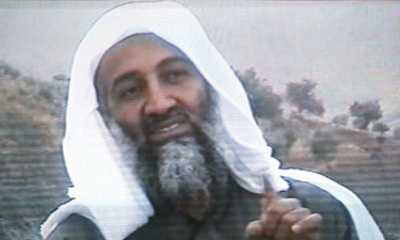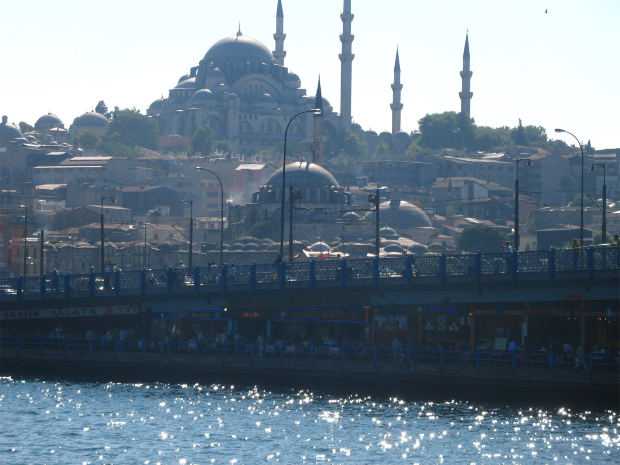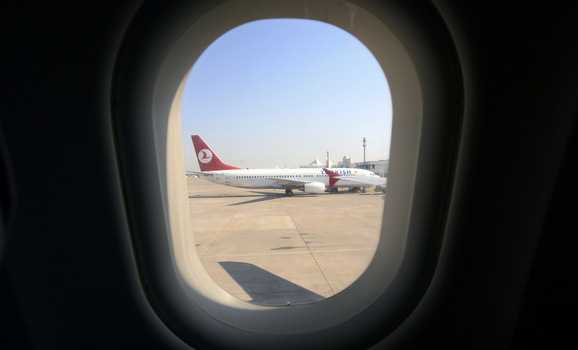July 15, 2008
By George Friedman
The Bush administration let it be known last week that it is prepared to start reducing the number of troops in Iraq, indicating that three brigades out of 15 might be withdrawn before Inauguration Day in 2009. There are many dimensions to the announcements, some political and some strategic. But perhaps the single most important aspect of the development was the fairly casual way the report was greeted. It was neither praised nor derided. Instead, it was noted and ignored as the public focused on more immediate issues.
In the public mind, Iraq is clearly no longer an immediate issue. The troops remain there, still fighting and taking casualties, and there is deep division over the wisdom of the invasion in the first place. But the urgency of the issue has passed. This doesn’t mean the issue isn’t urgent. It simply means the American public — and indeed most of the world — have moved on to other obsessions, as is their eccentric wont. The shift nevertheless warrants careful consideration.
Obviously, there is a significant political dimension to the announcement. It occurred shortly after Sen. Barack Obama began to shift his position on Iraq from what appeared to be a demand for a rapid withdrawal to a more cautious, nuanced position. As we have pointed out on several occasions, while Obama’s public posture was for withdrawal with all due haste, his actual position as represented in his position papers was always more complex and ambiguous. He was for a withdrawal by the summer of 2010 unless circumstances dictated otherwise. Rhetorically, Obama aligned himself with the left wing of the Democratic Party, but his position on the record was actually much closer to Sen. John McCain’s than he would admit prior to his nomination. Therefore, his recent statements were not inconsistent with items written on his behalf before the nomination — they merely appeared s o.
The Bush administration was undoubtedly delighted to take advantage of Obama’s apparent shift by flanking him. Consideration of the troop withdrawal has been under way for some time, but the timing of the leak to The New York Times detailing it must have been driven by Obama’s shift. As Obama became more cautious, the administration became more optimistic and less intransigent. The intent was clearly to cause disruption in Obama’s base. If so, it failed precisely because the public took the administration’s announcement so casually. To the extent that the announcement was political, it failed because even the Democratic left is now less concerned about the war in Iraq. Politically speaking, the move was a maneuver into a vacuum.
But the announcement was still significant in other, more important ways. Politics aside, the administration is planning withdrawals because the time has come. First, the politico-military situation on the ground in Iraq has stabilized dramatically. The reason for this is the troop surge — although not in the way it is normally thought of. It was not the military consequences of an additional 30,000 troops that made the difference, although the addition and changes in tactics undoubtedly made an impact.
What was important about the surge is that it happened at all. In the fall of 2006, when the Democrats won both houses of Congress, it appeared a unilateral U.S. withdrawal from Iraq was inevitable. If Bush wouldn’t order it, Congress would force it. All of the factions in Iraq, as well as in neighboring states, calculated that the U.S. presence in Iraq would shortly start to decline and in due course disappear. Bush’s order to increase U.S. forces stunned all the regional players and forced a fundamental recalculation. The assumption had been that Bush’s hands were tied and that the United States was no longer a factor. What Bush did — and this was more important than numbers or tactics — was demonstrate that his hands were not tied and that the United States could not be discounted.
The realization that the Americans were not going anywhere caused the Sunnis, for example, to reconsider their position. Trapped between foreign jihadists and the Shia, the Americans suddenly appeared to be a stable and long-term ally. The Sunni leadership turned on the jihadists and aligned with the United States, breaking the jihadists’ backs. Suddenly facing a U.S.-Sunni-Kurdish alliance, the Shia lashed out, hoping to break the alliance. But they also split between their own factions, with some afraid of being trapped as Iranian satellites and others viewing the Iranians as the solution to their problem. The result was a civil war not between the Sunnis and Shia, but among the Shia themselves.
Tehran performed the most important recalculation. The Iranians’ expectation had been that the United States would withdraw from Iraq unilaterally, and that when it did, Iran would fill the vacuum it left. This would lead to the creation of an Iranian-dominated Iraqi Shiite government that would suppress the Sunnis and Kurds, allowing Iran to become the dominant power in the Persian Gulf region. It was a heady vision, and not an unreasonable one — if the United States had begun to withdraw in the winter of 2006-2007.
When the surge made it clear that the Americans weren’t leaving, the Iranians also recalculated. They understood that they were no longer going to be able to create a puppet government in Iraq, and the danger now was that the United States would somehow create a viable puppet government of its own. The Iranians understood that continued resistance, if it failed, might lead to this outcome. They lowered their sights from dominating Iraq to creating a neutral buffer state in which they had influence. As a result, Tehran acted to restrain the Shiite militias, focusing instead on maximizing its influence with the Shia participating in the Iraqi government, including Iraqi Prime Minister Nouri al-Maliki.
A space was created between the Americans and Iranians, and al-Maliki filled it. He is not simply a pawn of Iran — and he uses the Americans to prevent himself from being reduced to that — but neither is he a pawn of the Americans. Recent negotiations between the United States and the al-Maliki government on the status of U.S. forces have demonstrated this. In some sense, the United States has created what it said it wanted: a strong Iraqi government. But it has not achieved what it really wanted, which was a strong, pro-American Iraqi government. Like Iran, the United States has been forced to settle for less than it originally aimed for, but more than most expected it could achieve in 2006.
This still leaves the question of what exactly the invasion of Iraq achieved. When the Americans invaded, they occupied what was clearly the most strategic country in the Middle East, bordering Kuwait, Saudi Arabia, Jordan, Syria, Turkey and Iran. Without resistance, the occupation would have provided the United States with a geopolitical platform from which to pressure and influence the region. The fact that there was resistance absorbed the United States, therefore negating the advantage. The United States was so busy hanging on in Iraq that it had no opportunity to take advantage of the terrain.
That is why the critical question for the United States is how many troops it can retain in Iraq, for how long and in what locations. This is a complex issue. From the Sunni standpoint, a continued U.S. presence is essential to protect Sunnis from the Shia. From the Shiite standpoint, the U.S. presence is needed to prevent Iran from overwhelming the Shia. From the standpoint of the Kurds, a U.S. presence guarantees Kurdish safety from everyone else. It is an oddity of history that no major faction in Iraq now wants a precipitous U.S. withdrawal — and some don’t want a withdrawal at all.
For the United States, the historical moment for its geopolitical coup seems to have passed. Had there been no resistance after the fall of Baghdad in 2003, the U.S. occupation of Iraq would have made Washington a colossus astride the region. But after five years of fighting, the United States is exhausted and has little appetite for power projection in the region. For all its bravado against Iran, no one has ever suggested an invasion, only airstrikes. Therefore, the continued occupation of Iraq simply doesn’t have the same effect as it did in 2003.
But the United States can’t simply leave. The Iraqi government is not all that stable, and other regional powers, particularly the Saudis, don’t want to see a U.S. withdrawal. The reason is simple: If the United States withdraws before the Baghdad government is cohesive enough, strong enough and inclined enough to balance Iranian power, Iran could still fill the partial vacuum of Iraq, thereby posing a threat to Saudi Arabia. With oil at more than $140 a barrel, this is not something the Saudis want to see, nor something the United States wants to see.
Internal Iraqi factions want the Americans to stay, and regional powers want the Americans to stay. The Iranians and pro-Iranian Iraqis are resigned to an ongoing presence, but they ultimately want the Americans to leave, sooner rather than later. Thus, the Americans won’t leave. The question now under negotiation is simply how many U.S. troops will remain, how long they will stay, where they will be based and what their mission will be. Given where the United States was in 2006, this is a remarkable evolution. The Americans have pulled something from the jaws of defeat, but what that something is and what they plan to do with it is not altogether clear.
The United States obviously does not want to leave a massive force in Iraq. First, its more ambitious mission has evaporated; that moment is gone. Second, the U.S. Army and Marines are exhausted from five years of multidivisional warfare with a force not substantially increased from peacetime status. The Bush administration’s decision not to dramatically increase the Army was rooted in a fundamental error: namely, the administration did not think the insurgency would be so sustained and effective. They kept believing the United States would turn a corner. The result is that Washington simply can’t maintain the current force in Iraq under any circumstances, and to do so would be strategically dangerous. The United States has no strategic ground reserve at present, opening itself to dangers outside of Iraq. Therefore, if the United States is not going to get to play colossus of the Middle East, it needs to reduce its forces dramatically to recreate a strategic reserv e. Its interests, the interests of the al-Maliki government — and interestingly, Iran’s interests — are not wildly out of sync. Washington wants to rapidly trim down to a residual force of a few brigades, and the other two players want that as well.
The United States has another pressing reason to do this: It has another major war under way in Afghanistan, and it is not winning there. It remains unclear if the United States can win that war, with the Taliban operating widely in Afghanistan and controlling a great deal of the countryside. The Taliban are increasingly aggressive against a NATO force substantially smaller than the conceivable minimum needed to pacify Afghanistan. We know the Soviets couldn’t do it with nearly 120,000 troops. And we know the United States and NATO don’t have as many troops to deploy in Afghanistan as the Soviets did. It is also clear that, at the moment, there is no exit strategy. Forces in Iraq must be transferred to Afghanistan to stabilize the U.S. position while the new head of U.S. Central Command, Gen. David Petraeus — the architect of the political and military strategy in Iraq — f igures out what, if anything, is going to change.
Interestingly, the Iranians want the Americans in Afghanistan. They supported the invasion in 2001 for the simple reason that they do not want to see an Afghanistan united under the Taliban. The Iranians almost went to war with Afghanistan in 1998 and were delighted to see the United States force the Taliban from the cities. The specter of a Taliban victory in Afghanistan unnerves the Iranians. Rhetoric aside, a drawdown of U.S. forces in Iraq and a transfer to Afghanistan is what the Iranians would like to see.
To complicate matters, the Taliban situation is not simply an Afghan issue — it is also a Pakistani issue. The Taliban draw supplies, recruits and support from Pakistan, where Taliban support stretches into the army and the intelligence service, which helped create the group in the 1990s while working with the Americans. There is no conceivable solution to the Taliban problem without a willing and effective government in Pakistan participating in the war, and that sort of government simply is not there. Indeed, the economic and security situation in Pakistan continues to deteriorate.
Therefore, the Bush administration’s desire to withdraw troops from Iraq makes sense on every level. It is a necessary and logical step. But it does not address what should now become the burning issue: What exactly is the U.S. strategy in Afghanistan? As in Iraq before the surge, the current strategy appears to be to hang on and hope for the best. Petraeus’ job is to craft a new strategy. But in Iraq, for better or worse, the United States faced an apparently implacable enemy — Iran — which in fact pursued a shrewd, rational and manageable policy. In Afghanistan, the United States is facing a state that appears friendly — Pakistan — but is actually confused, divided and unmanageable by itself or others.
Petraeus’ success in Iraq had a great deal to do with Tehran’s calculations of its self-interest. In Pakistan, by contrast, it is unclear at the moment whether anyone is in a position to even define the national self-interest, let alone pursue it. And this means that every additional U.S. soldier sent to Afghanistan raises the stakes in Pakistan. It will be interesting to see how Afghanistan and Pakistan play out in the U.S. presidential election. This is not a theater of operations that lends itself to political soundbites.
www.stratfor.com






